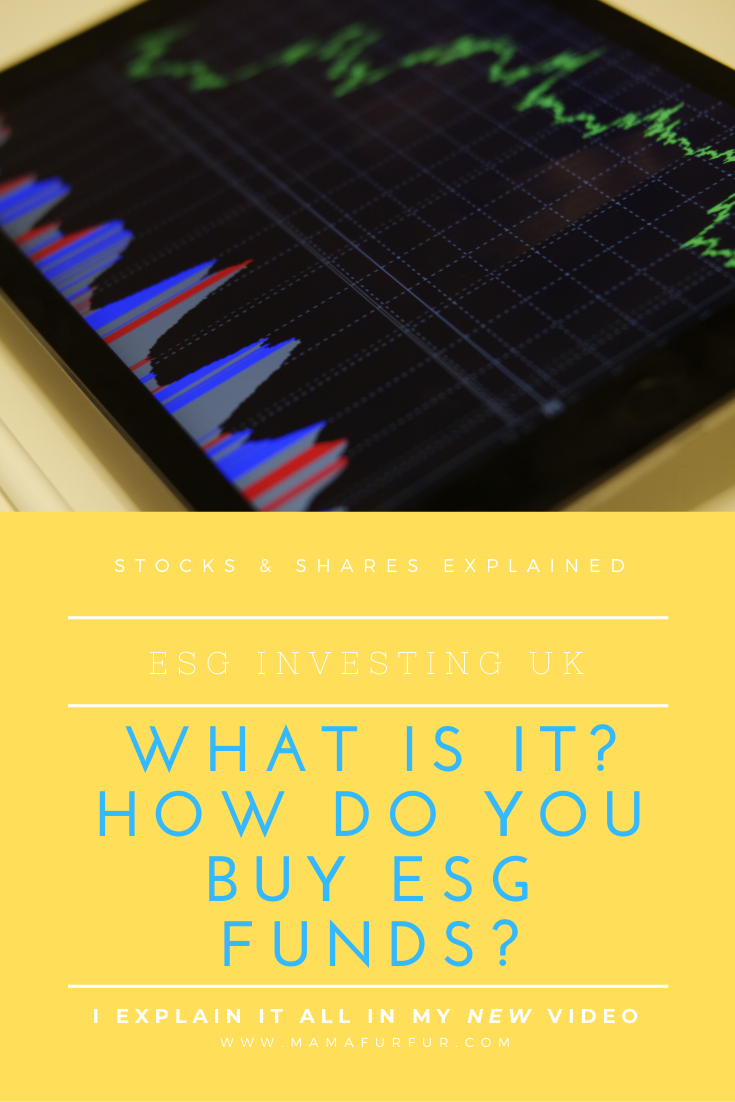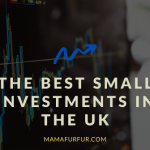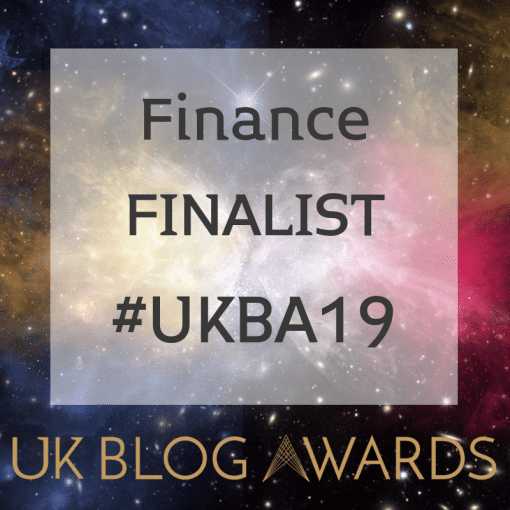ESG Investments UK – Socially Responsible Investing
What is ESG investing, what is the meaning of it, and why should we be mindful of it, as
investors? All questions that I will cover today in this post.
You may have seen the term ESG when analysing different types of funds, companies or
metrics. ESG stands for Environmental Social Governance – but what does it mean?
E – Environment – It means, how does that company, in relation to its peers, deal with its
environment whilst producing its product or service. It will also look at how that company
looks after the environment around it, for example, are they taking an interest in the wildlife,
and ensuring how they’re producing isn’t adversely affecting them?
Of course, another factor that can be at play here is their actual consumption level. How
much energy are they using to produce the product or service, and are they approaching this
in an environmentally charged way?
S – Social – What are they doing in terms of their community when they’re producing? They
will be looking at how well the workers are treated, what the environment is like for the
workers, and how they look after their customer relationships.
G – Governance – In essence how is the leadership of the company running it. Are they
running it well? Have they scored well in their Environmental and Social responsibilities?
Even how the company structures the company right through from employee level, through
to executives.
Overall, the idea of ESG investments is that they are being judged on their ethical’ness’, and
companies considered to be ESG standard tend to be favoured by those who aren’t just
looking for a quick profit, but instead they actively run their company from an ethical
perspective.
If you feel strongly about these points in your everyday life, ESG companies and funds will
be immensely important for you, because your beliefs can also be represented in your
investment portfolio.
Often excluded from ESG funds are things like tobacco companies, firearm companies –
pretty much anything that is not considered “ethical”. Although, a company you consider to
be unethical in the way they are run, like Amazon or Facebook, for example, doesn’t
necessarily mean they are not ethical by ESG standards.
This is why you must always check what companies the fund you choose, is invested in, as some of them may still not meet
your morals. Remember, ethical investing is subjective, so you should always do your due
diligence as companies could be there, in the fund, that you may not have wanted to invest
in.
If you have to make faith-based investments, some of the companies you can invest in have
to meet certain criteria based on how they make interest or even the types of products they
produce. So ESG investing might not be for you in this case. You should then seek out faith-
based investment funds – I have a video on it here.
Another good way to spot these ESG funds is watching out for funds named SRI (Social
Responsible Index), essentially another parameter or way of classifying these ethical, social. and community-based companies that are looking out for the people they’re making products
for, the people who work for them and of course, the environmental impact on the world as a
whole.
ESG companies often signify a sort of longevity as well, because they aren’t focussing on
just the short term, so are far more likely to stick around, because they’re actively planning
for the future. People will also resonate towards these brands, in turn generating good
profits, because they are doing good things.
Vanguard has recently hit this ESG metric and they have released an ESG Developed
World All Cap Equity Index Fund (UK) and an ESG Emerging Markets All Cap Equity Index
Fund (UK).
Vanguard has screened out companies that aren’t involved with things like
renewable energy, or are involved with vice products, such as alcohol, or weapon
manufacturers.
As an investor in those two particular funds, we can expect to pay between 0.20% and
0.25% in admin charges, this is mainly because the criteria to be in that fund is very organic
and is likely to change, so in some ways, it needs to be constantly monitored, to ensure that
companies are still meeting their criteria.
I also mentioned the term SRI above, and Vanguard also caters to that market with their
Developed Europe Index Fund.
If you aren’t a Vanguard customer, and you don’t want to invest with Vanguard, there is
iShares MSCI World ESG Screened ETF funds. This fund works by tracking the
performance of an index composed of developed markets. That index, much like Vanguard,
screens out any weapon producers, nuclear weapons, tobacco, oil or anyone failing on UN
characteristics as well.
These funds effectively do all the hard work for you! It would be very difficult to invest in
individual companies and have to do this level of due diligence yourself. You know that these
funds are constantly being maintained and monitored to ensure that companies within it are
meeting the criteria, and if a company stops meeting it, they’ll be struck off the fund. This is
why there are slightly higher charges because the fund it so closely monitored.











